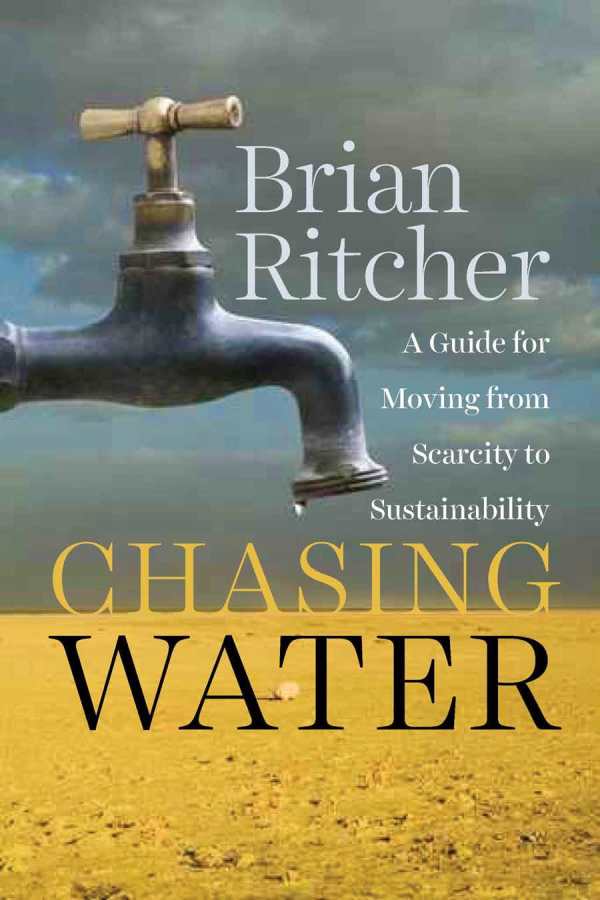Chasing Water
A Guide for Moving from Scarcity to Sustainability
This is a book of balance—delivered with appreciated measures of integrity and clarity.
Brian Richter finds the right balance of urgency and optimism in dealing with the global issue of water management in the accessible and intelligent Chasing Water. Through in-depth case analysis and by applying malleable strategies for governments and citizens, Richter empowers readers to think and act with purpose for the benefit of all who rely on depleted water resources. This book illustrates the interlocking and interdependent effect water has on economics, politics, and survival.
While most of the book’s content seems targeted to policy makers, local and state governments, and manufacturing and agricultural businesses, Richter has made a deliberate attempt to include the average concerned citizen in the conversation. He begins by outlining the problem in his first chapter, “Running out of Water,” which provides a concise global historical context for the current crisis. Instead of sensationalizing the impact water scarcity has on human survival, he introduces a metaphor for water resources as a “household budget.” Just as there are options for budgeting expenses in a bank account, there are options for budgeting resources that are either continually replenished through precipitation or become “overdrawn” and are no longer viable. It is an obvious metaphor but one that helps make complicated ecological systems easier to understand. Richter also reveals the types of water use and percentages of “consumption” and “return,” which is a helpful overview.
As several chapters focus on who is responsible and what can be done, Richter’s voice remains informative and academic, which muffles what may have been intended as a call to action. There are several succinct and interesting stories about partnerships, legislative acts, and acts of activism that have led to positive outcomes for water sustainability. However, there is a sense that water sustainability is low-hanging fruit that governments and businesses need only choose to focus on in order to achieve. Buried in an earlier chapter is the small mention of political and economic corruption and monetary gain, which could pervert concepts like trading water entitlements and capping or repricing commodities.
Readers who feel the scarcity of water or who are generally concerned with the environmental impact humans are having on existing ecosystems and resources will find a lot of valuable and useful information in this book. Elected officials, civil engineers, students, and educators should feel obligated to read it.
Reviewed by
Sara Budzik
Disclosure: This article is not an endorsement, but a review. The publisher of this book provided free copies of the book to have their book reviewed by a professional reviewer. No fee was paid by the publisher for this review. Foreword Reviews only recommends books that we love. Foreword Magazine, Inc. is disclosing this in accordance with the Federal Trade Commission’s 16 CFR, Part 255.

